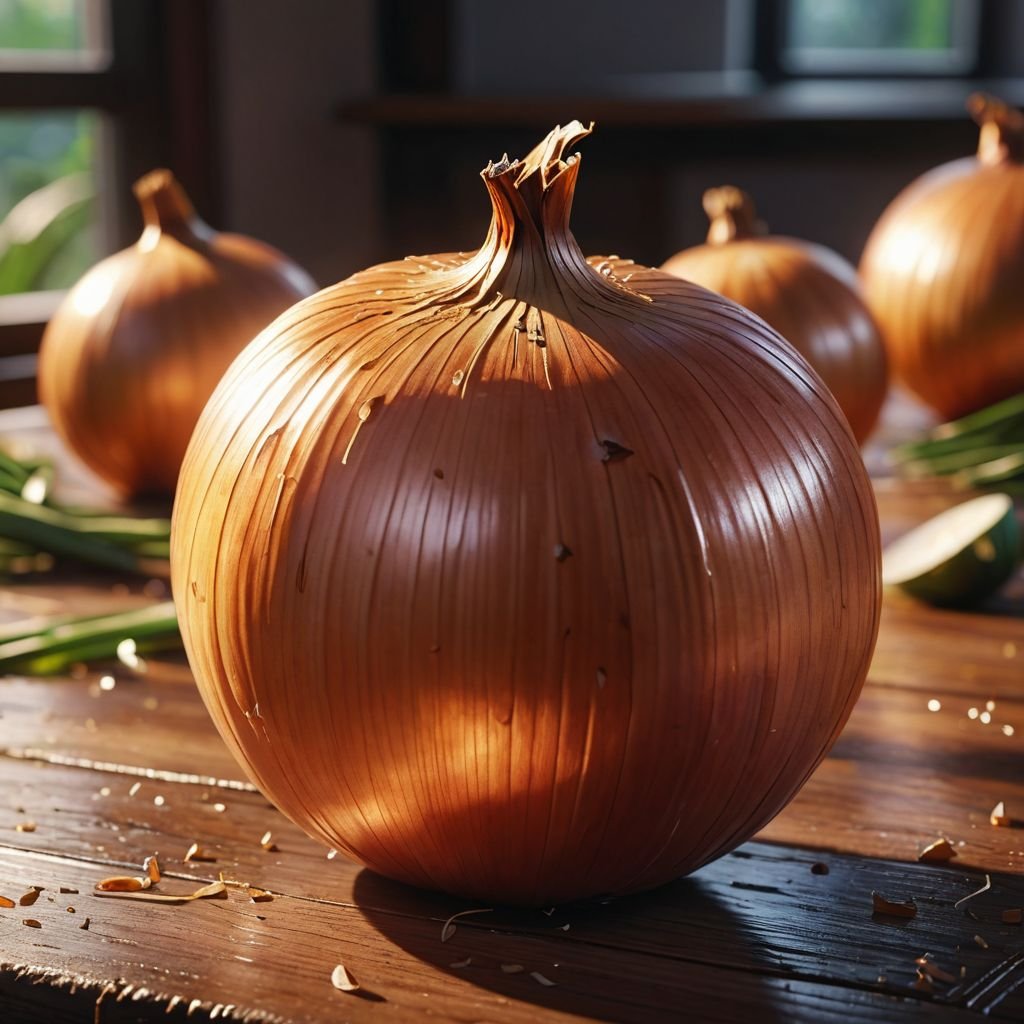Onions have been a staple in culinary traditions around the world for thousands of years. They are versatile, flavorful, and packed with nutrients. Beyond their culinary uses, onions offer a wide range of health benefits that are supported by scientific research. This comprehensive blog will delve into the myriad benefits of onions, exploring their nutritional profile, health benefits, and practical uses in everyday life.

### Nutritional Profile of Onions
Onions are low in calories but high in beneficial nutrients, including vitamins, minerals, and antioxidants. Here’s a closer look at the nutritional components of onions:
1. **Vitamins:**
– **Vitamin C:** Onions are an excellent source of vitamin C, an antioxidant that plays a crucial role in immune function, collagen synthesis, and the repair of body tissues. – **B Vitamins:** Onions contain several B vitamins, including folate (B9) and pyridoxine (B6), which are essential for energy metabolism, red blood cell formation, and brain function.
2. **Minerals:**
– **Potassium:** This mineral is vital for maintaining normal fluid balance, muscle contractions, and nerve signals. – **Manganese:** Manganese is important for bone health, metabolism, and antioxidant functions.
3. **Antioxidants:**
– **Quercetin:** Onions are rich in quercetin, a potent antioxidant that has anti-inflammatory and anti-cancer properties. – **Sulfur Compounds:** These compounds, such as allyl propyl disulfide and diallyl disulfide, contribute to the onion’s distinctive flavor and health benefits.
4. **Fiber:**
– Onions provide a good amount of dietary fiber, which is important for digestive health and maintaining regular bowel movements.
### Health Benefits of Onions
The consumption of onions has been linked to a wide array of health benefits. Here are some of the most notable:

1. **Boosting Immune Function:**
– The high vitamin C content in onions helps to strengthen the immune system. Vitamin C stimulates the production of white blood cells and helps them function more effectively, protecting the body against infections.
2. **Anti-inflammatory Effects:**
– Onions contain antioxidants like quercetin, which have anti-inflammatory properties. Regular consumption of onions can help reduce inflammation in the body, which is a contributing factor in many chronic diseases such as heart disease, diabetes, and arthritis.
3. **Cardiovascular Health:**
– Several studies have shown that the antioxidants in onions can help reduce blood pressure, decrease the risk of heart disease, and improve cholesterol levels. The sulfur compounds in onions can also help prevent blood clotting, which reduces the risk of stroke and heart attack.
4. **Cancer Prevention:**
– Research suggests that the sulfur compounds and antioxidants in onions may help reduce the risk of certain cancers, including stomach, colon, and prostate cancers. Quercetin, in particular, has been found to inhibit the growth of cancer cells and induce apoptosis (programmed cell death) in various types of cancer.
5. **Digestive Health:**
– The dietary fiber in onions aids in digestion and helps maintain a healthy gut microbiome. Additionally, onions contain prebiotics, which are non-digestible fibers that promote the growth of beneficial bacteria in the gut.
6. **Bone Health:**
– Onions have been linked to improved bone density and reduced risk of osteoporosis, especially in older women. The sulfur compounds in onions are believed to help maintain bone health by preventing bone loss.
7. **Blood Sugar Regulation:**
– Onions contain compounds that may help regulate blood sugar levels. Studies have shown that onion extract can lower blood glucose levels, making onions beneficial for people with diabetes or those at risk of developing the condition.
8. **Antibacterial Properties:**
– Onions have natural antibacterial properties, which can help fight off harmful bacteria. The sulfur compounds in onions have been shown to be effective against bacteria like Escherichia coli and Staphylococcus aureus.
### Practical Uses of Onions

Beyond their health benefits, onions are incredibly versatile in the kitchen and can be used in a variety of dishes. Here are some practical ways to incorporate onions into your diet:
1. **Raw:** – Onions can be eaten raw in salads, sandwiches, and salsas. They add a crisp texture and sharp flavor to fresh dishes.
2. **Cooked:** – Sautéing, caramelizing, roasting, and grilling onions can bring out their natural sweetness and add depth to dishes like soups, stews, and casseroles.
3. **Pickled:** – Pickling onions is a great way to preserve them and add a tangy flavor to burgers, tacos, and salads.
4. **Onion Powder:** – Onion powder is a convenient way to add the flavor of onions to dishes without the prep work. It can be used in spice rubs, marinades, and seasoning blends.
5. **Onion Juice:** – Onion juice can be used as a natural remedy for hair growth and scalp health. Applying onion juice to the scalp is believed to improve blood circulation and promote hair growth.
### Onions in Traditional Medicine
Onions have been used in traditional medicine for centuries. Different cultures have utilized onions for their healing properties:
1. **Ancient Egypt:** – Onions were revered in ancient Egypt for their medicinal properties and were often used in religious rituals. They were believed to promote strength and endurance.
2. **Ayurvedic Medicine:** – In Ayurvedic medicine, onions are used to balance the body’s doshas (vital energies) and are believed to improve digestion, enhance immunity, and treat respiratory conditions.
3. **Traditional Chinese Medicine (TCM):** – Onions are used in TCM to stimulate appetite, relieve coughs, and treat congestion. They are also believed to have warming properties that promote blood circulation.
### Scientific Studies on Onions
Numerous scientific studies have investigated the health benefits of onions. Here are a few notable findings:
1. **Cancer Research:** – A study published in the *Journal of the National Cancer Institute* found that the consumption of allium vegetables, including onions, was associated with a reduced risk of prostate cancer. Another study published in the *American Journal of Clinical Nutrition* reported that high intake of onions was linked to a lower risk of stomach cancer.
2. **Cardiovascular Health:** – Research published in the *British Journal of Nutrition* demonstrated that regular consumption of onions improved blood lipid profiles and reduced the risk of atherosclerosis (hardening of the arteries).
3. **Anti-inflammatory Effects:** – A study in the journal *Biochemical Pharmacology* showed that quercetin, an antioxidant found in onions, reduced markers of inflammation in human cells.
4. **Antibacterial Properties:** – An article in the *Journal of Antimicrobial Chemotherapy* highlighted the antibacterial effects of onion extracts against various strains of bacteria, suggesting their potential as natural antibacterial agents.

### Conclusion
Onions are a powerhouse of nutrition and offer numerous health benefits. Their versatility in cooking makes them a valuable addition to any diet. Whether consumed raw, cooked, or in the form of supplements, onions can contribute to better health and wellbeing.
Incorporating onions into your daily diet can help boost your immune system, reduce inflammation, support cardiovascular health, prevent cancer, improve digestion, and regulate blood sugar levels. Additionally, their traditional uses in medicine and recent scientific research underscore the importance of this humble vegetable.So, next time you add onions to your meal, remember that you are not just enhancing the flavor of your dish but also promoting your health in multiple ways. Embrace the power of onions and enjoy their numerous benefits!